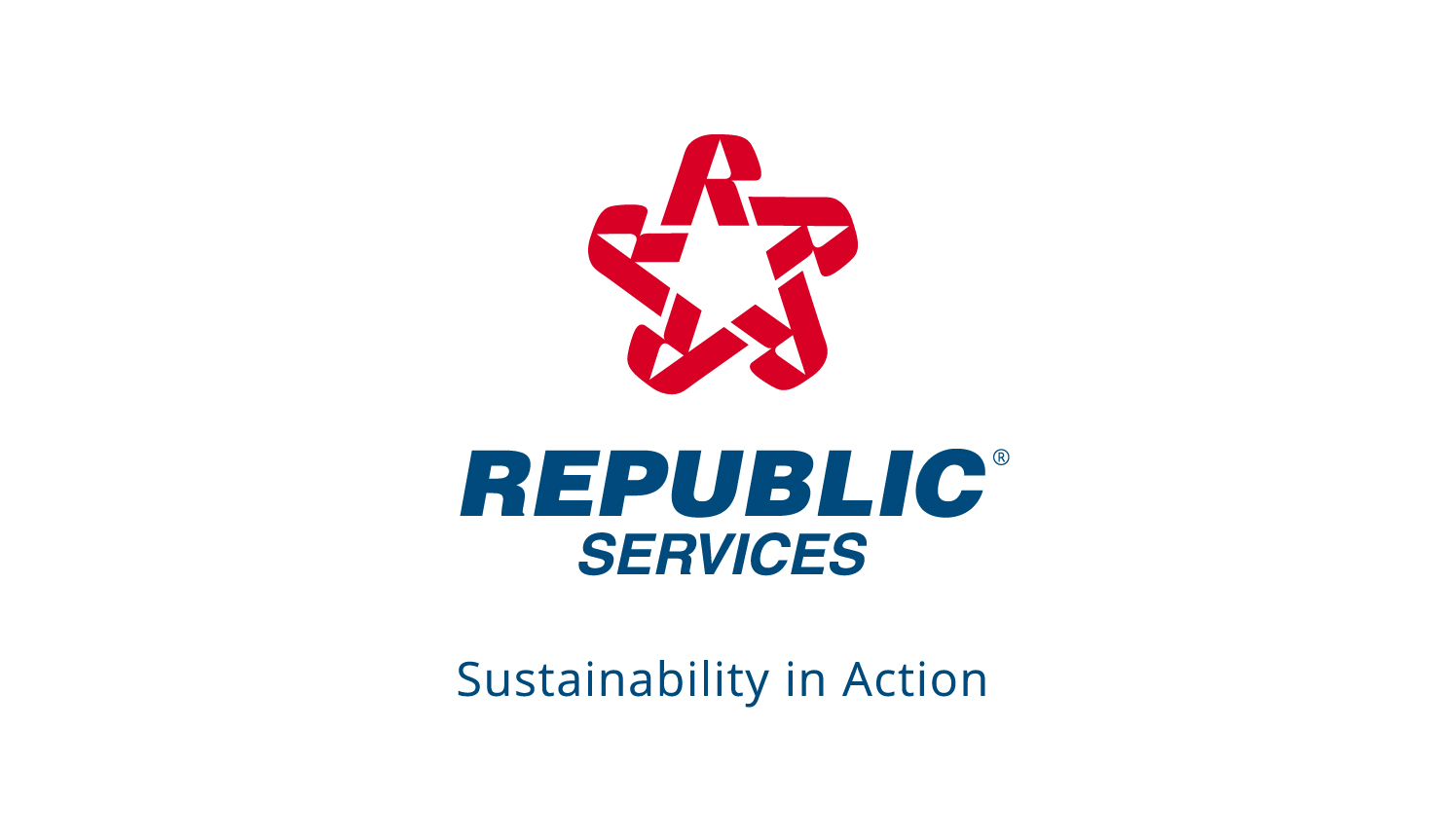Republic Services: Organics

Organics represents another sustainable solution for an evolving waste stream. According to the EPA, food waste is the second largest category of municipal solid waste sent to the nation’s landfills, accounting for approximately 18% of the overall waste stream. Together with yard waste, organic materials represent nearly 30% of what Americans throw away each day. Diverting food and yard waste can help conserve limited landfill space for materials that must be landfilled, while reducing greenhouse gas emissions from the decomposition of organics within landfills.
Alternatively, during the composting process, micro-organisms naturally break down organic waste into a nutrient-rich byproduct that can be beneficially used in residential and commercial gardens, landscaping and agriculture.
To process this material, Republic Service’s teams use a composting method that consists of piling organic matter in long rows, called windrows. These rows are monitored for temperature, moisture and oxygen levels to ensure there is sufficient oxygen to allow the micro-organisms to breathe, and break down the material. Each week, their teams use large machines, known as windrow turners, to rotate the rows and maintain an optimal composting environment. The final phase of composting involves screening and testing the material before it is deemed ready for market.
At Republic’s Pacific Region Compost site, near Corvallis, OR, they process more than 100,000 tons of residential yard debris, residential organics and commercial food waste into compost each year. This enables many of Republic’s customers to close the loop with organics material, going from kitchen to garden, and back again. They take considerable pride in this operation and donate more than 150 cubic yards of compost each year to area community gardens, who in turn produce fresh produce for area food banks.
Nationwide, Republic Services converted organics into more than 1-million tons of compostable material for various types of commercial and residential re-use.
For more information about materials management at Republic Services, visit page 18 of the recently released 2015 Sustainability Report at: https://www.republicservices.com/cms/documents/2015-sustainability-report.pdf

